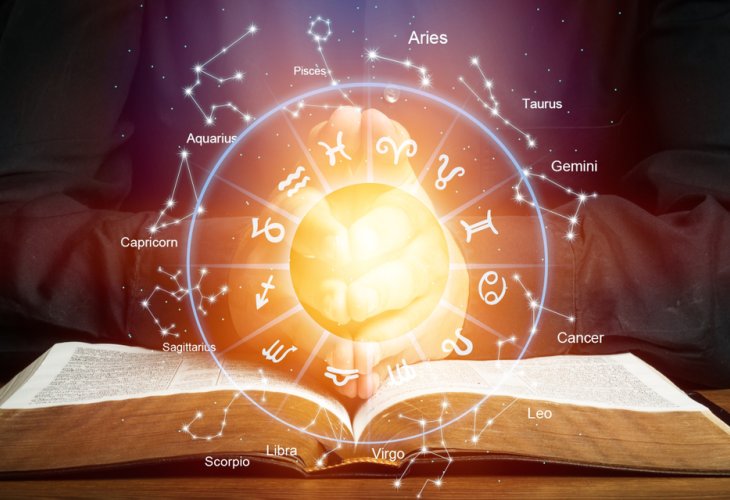Kabbalah and Mysticism
Jewish Astrology and the Power of Mazal: Can We Change Our Destiny?
How the wisdom of the stars coexists with free will, and why faith, prayer, and good deeds can transcend cosmic influence and reshape destiny
 (Photo: shutterstock)
(Photo: shutterstock)1. The Origin of the Mazalot
The constellations (mazalot) are first mentioned in Sefer Yetzirah — a mystical text traditionally attributed to Avraham the Patriarch. There it is explained that the mazalot are twelve archetypal forms or cosmic patterns created by God at the dawn of the universe.
2. Are the Jewish People “Above the Stars”?
Although the Torah and rabbinic tradition state that “Israel is above the stars,” the early commentators (Rishonim) debate its meaning. Some explain that even Israel has a mazal — a spiritual influence, but that through great merit, prayer, and righteous deeds, one can rise above it and alter fate.
3. The Jewish View of Astrology
While Judaism recognizes the existence of celestial influences, the Torah forbids acting solely according to the mazalot or astrological signs. God is the Creator of both the constellations and their governing forces, and He alone determines the outcome of events.
Therefore, even if the stars indicate something negative, sincere prayer and repentance have the power to transform it for the good. For this reason, Jews are forbidden to make decisions based on astrology, but must act according to the halacha — the divine law that applies in all situations.
Jews have the custom of saying “Mazal Tov” (Good fortune!) — because we believe that, through God’s guidance, there is no such thing as a “bad mazal” for a Jew.
4. A Word of Caution
Astrology itself is not considered idolatry, yet 99.9% of those who claim to practice it today do not understand its true meaning. The authentic wisdom of the mazalot, as it was known to the sages of the Talmud, has been largely lost.
Rabbi Zamir Cohen explains in one of his lectures that while the stars have influence, the Jewish people possess the ability to transcend that influence through spiritual elevation.
5. Astrology in the Ancient World
Thousands of years ago, kings and scholars studied the heavens to interpret human destiny and personality, and astrology served as a central guide in decision-making.
How reliable is astrology? How does Judaism relate to it? Is our fate predetermined, or can we influence it? These are questions explored in depth by contemporary rabbis such as Rabbi Zamir Cohen and Rabbi Yitzchak Fanger.
6. “There Is No Mazal for Israel” — Talmudic Perspective
The Babylonian Talmud (Tractate Shabbat 156a) discusses whether the Jewish people are bound by the stars: Rabbi Yochanan said, “There is no mazal for Israel.” As it is written (Yirmiyahu 10): “Thus says the Lord: Learn not the way of the nations, nor be dismayed at the signs of the heavens, for the nations are dismayed by them.”
The nations fear the stars, but Israel does not.
The Talmud continues with the story of Avraham, who said to God: “I have seen in my astrology that I am not destined to have a child.” God replied: “Go out from your astrology — there is no mazal for Israel.”
From this we understand that faith and divine connection transcend celestial determination.
7. The Day of Birth and One’s Mazal
The Jerusalem Talmud (Rosh Hashanah 3:8) adds a fascinating insight: Amalek, the enemy of Israel, would place his warriors in battle on the day of their birth, when their personal mazal was strongest. Moshe, perceiving this, “confused the stars,” nullifying their influence.
This teaches that while mazal exists, its power can be overridden by divine will and spiritual alignment.
8. The Month of Birth and Its Blessing
According to the Kabbalists, the month of a person’s birth has a positive influence on their character and destiny. Each Hebrew month corresponds to a mazal, element, and spiritual energy that shape the soul’s potential.
9. The Twelve Jewish Zodiac Signs
Each Hebrew month has its own corresponding mazal:
Nisan – Aries (Taleh)
Iyar – Taurus (Shor)
Sivan – Gemini (Te’omim)
Tammuz – Cancer (Sartan)
Av – Leo (Aryeh)
Elul – Virgo (Betulah)
Tishrei – Libra (Moznaim)
Cheshvan – Scorpio (Akrav)
Kislev – Sagittarius (Keshet)
Tevet – Capricorn (Gdi)
Shevat – Aquarius (D’li)
Adar – Pisces (Dagim)
Each mazal expresses a unique divine attribute influencing the energy of the month and those born within it.
10. The Jewish Perspective on Fate and Free Will
According to Jewish thought, a person should not seek knowledge of the future through astrology or other unconventional means. The Ramban (Nachmanides) explains in Sefer HaMitzvot that the Torah commands: “Be wholehearted with the Lord your God.”
Even if astrology contains elements of truth, one should not rely on it. Instead, we are to live by the Torah’s moral and spiritual guidance. Through prayer, repentance, and good deeds, a Jew can alter any decree — even one written in the stars.
As the Talmud concludes: “There is no mazal for Israel.” While the stars may influence nature, faith, humility, and divine connection can transform destiny itself.

